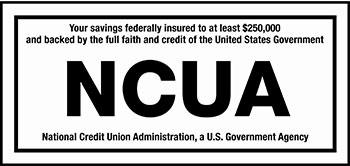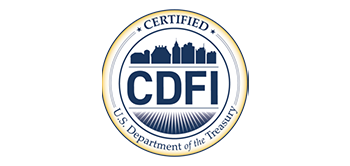Let’s be Real about Resolutions: 5 Tips for Setting Goals and Achieving Them

As we enter the new year, many of us find ourselves inspired to make positive changes in our lives. Whether it’s adopting a healthier lifestyle, advancing our careers, or cultivating personal growth, setting realistic goals is key to success. Many people give up on their resolutions just a few weeks or months into the new year — that’s why we’re giving you tips about how to set achievable goals and see them through! 1. Take a Quick Look Back: Before diving into new goals, take a moment to look back at the past year. Give yourself credit for the things you achieved and think about some of the ways you want to improve. For example, maybe you want to be more physically active or more financially responsible. Use these areas of improvement as the starting block for setting a goal. 2. Keep It Simple and Specific: If you have a big goal like “get fit” or “save big,” break it down into simpler, more specific goals that you can focus on completing. By creating specific goals like “move around for 30 minutes, four times a week” or “put $15 in savings every month,” you’ll find it easier to keep track of your progress and celebrate your small wins. 3. Be Honest About Time: Set timeframes that make sense. Remember, small steps add up to big progress over time, so create long-term goals and let those positive changes happen at their own pace. In addition, if you have multiple goals you want to tackle in the new year, focus only on a few goals at a time. Once you’ve made the first goals a habit, you can toss in more. Too many goals at once will quickly overwhelm you. 4. Get a Goal Buddy: Share your goals with someone who you know will uplift and encourage you. Having a friend to keep you accountable and keep your spirits high when things get difficult makes the journey less lonely. Plus, who doesn’t love having someone to share successes with? 5. Roll with the Punches. Life can throw curveballs, and it is perfectly okay to tweak your goals if needed. If you find that one of your goals is too ambitious, overwhelming, or simply not the right choice for you, give yourself the freedom to adjust your goals. This doesn’t mean you gave up — it just means that you’re learning what is and isn’t right for you. So, cheers to a new year where you smash those goals without stressing too much. Consistency, patience, and a bit of adaptability — that’s the plan for success. If you have a financial goal you’d like to work on in 2024, let us know! We’re happy to help you tackle debt, afford a big expense, strengthen your savings, and more. Reach out to our team today!
Securing Financial Freedom: A Guide for Young Adults

Entering adulthood often comes with a myriad of responsibilities, and one of the most significant challenges faced by many young people today is managing student debt while striving for financial stability. However, with careful planning, discipline, and the right strategies, it is possible to eliminate student debt, save money, and lay the foundation for a prosperous financial future. In this blog, we will explore practical steps that young adults can take to alleviate the burden of student debt, build savings habits, and establish a strong, lasting financial footing. Understand Your Student Debt: Start by gaining a comprehensive understanding of your student debt. Review your loan terms, interest rates, and repayment options. Calculate your monthly payments and identify if there are any opportunities for loan forgiveness or refinancing. By having a clear picture of your debt, you can develop a more effective repayment strategy. Create a Budget: Establishing a budget is crucial for managing your finances effectively. Begin by tracking your income and expenses to identify areas where you can cut back and save money. Prioritize essential expenses and allocate a proportion of your income toward debt repayment. By adhering to a budget, you’ll be better equipped to control your spending, avoid unnecessary debt, and save for the future. Increase Your Income: Finding ways to increase your income can significantly accelerate your journey to financial freedom. Consider taking up a part-time job or freelancing to supplement your earnings. Alternatively, explore opportunities for career advancement, additional certifications, or education that can lead to higher-paying jobs in the long run. Devoting extra income toward debt repayment will help you eliminate student debt faster. Explore Loan Repayment Strategies: Take advantage of loan repayment strategies that suit your financial situation. The two popular options include the snowball and avalanche methods. The snowball method involves paying off the smallest debt first while making minimum payments on others. Once the debt is paid off, move to the next smallest debt. The avalanche method focuses on paying off debts with the highest interest rates first. Choose the strategy that aligns with your preferences and stick to it. Prioritize Savings: While paying off student debt is crucial, it’s equally important to save money for emergencies and future goals. Establish an emergency fund that covers at least three to six months of living expenses. Set up automatic transfers to a savings account, treating it as a non-negotiable expense. Consistent savings habits will provide you with a safety net and financial stability. Minimize Expenses: Cutting unnecessary expenses can free up funds for debt repayment and savings. Consider evaluating your monthly subscriptions, dining out habits, and entertainment expenses. Look for cost-effective alternatives, such as cooking meals at home, exploring free recreational activities, and leveraging student discounts. Develop Financial Literacy: Invest time in expanding your financial knowledge. Read books, listen to podcasts like The Dave Ramsey Show, and attend workshops that focus on personal finance. Understanding concepts like investing, retirement planning, and credit management will empower you to make informed financial decisions and optimize your resources effectively. Eliminating student debt, saving money, and building a solid financial foundation requires dedication, discipline, and a well-planned approach. According to the Federal Reserve, Americans owe over $1.7 trillion in student loans, and this debt can be overwhelming for young people who are just starting out their careers. However, by understanding your student debt, creating a budget, increasing your income, and prioritizing savings, you can take control of your financial situation and pave the way toward a brighter future. Remember, financial freedom is not achieved overnight. It requires perseverance and a commitment to make smart financial choices. Embrace the journey, stay focused, and celebrate the milestones along the way, knowing that you are taking control of your financial well-being and your future. If you need help with any step along the way, come talk to us at Brewery Credit Union. Sources: https://www.federalreserve.gov/publications/2022-economic-well-being-of-us-households-in-2021-student-loans.htm https://www.nber.org/system/files/working_papers/w18412/w18412.pdf https://www.ramseysolutions.com/debt/25-things-to-know-before-you-turn-25
Fast, Safe, Social — Are We Sure About That?

In today’s fast-paced digital world, money apps like Venmo and Cash App have gained popularity as convenient tools for managing financial transactions. They offer seamless peer-to-peer transfers and provide a simple way to split bills, pay friends, or make online purchases. However, it’s essential to recognize the potential risks associated with keeping money in these money apps. In this blog, we will explore why relying on money apps for storing funds might not be the wisest choice and why considering alternatives is a prudent financial decision. In early June of 2023, the Consumer Financial Bureau warned that customers of PayPal, Venmo, and CashApp, are “at risk of losing their money in a crisis because the funds are not protected by federal deposit insurance,” (CBS News). In short, if the payment of these apps suddenly crashes, your money is gone. According to the Pew Research Center in a study they conducted last year in 2022, 57% of American adults have utilized PayPal, 38% Venmo, and about 26% have utilized CashApp. So in total, roughly 76% of Americans say “they have used at least one of these three payment sites or apps,” (Pew Research Center). To safeguard funds stored in payment apps, experts recommend taking proactive measures. Consumer Reports suggests promptly removing transferred funds from the app into a traditional bank account. By doing so, you eliminate the risk of your money disappearing if the app were to fail. Setting up automatic reminders, such as email or text notifications, can also help ensure timely transfers. It is crucial to avoid leaving substantial amounts of money idle within the app, as this increases the potential danger. While money apps offer convenience and simplicity, it’s vital to be aware of the risks associated with relying solely on these platforms for storing funds. The lack of federal deposit insurance and the possibility of app failures pose significant threats to the security of your money. By considering alternative options, such as promptly transferring funds to traditional bank accounts, setting up reminders for regular transfers, and being mindful of leaving substantial amounts of money within the app, you can better protect your hard-earned funds. It is essential to strike a balance between convenience and security, ensuring the safety of your finances in an ever-evolving digital landscape. Take a minute to review the deposit opportunities at Brewery Credit Union for both checking and savings accounts. Contact us with any questions. Sources: https://www.cbsnews.com/news/paypal-cash-app-venmo-payment-apps-deposit-insurance-cfpb/ https://www.nytimes.com/2023/06/09/your-money/venmo-cash-app-paypal-payment-
Tidy Up Your Transactions

In a world of subscription services and money-transferring apps, it is easier than ever to lose track of where your money is going. The list of streaming services is never ending, making it hard to remember what you pay for each month and if you even use the service enough for it to be worthwhile. Plus, apps like Venmo can make spending money dangerously easy. While all these services come with perks, they can also make your monthly budget disappear before your eyes. If your transaction list is cluttered with automated subscription renewals or surprise expenses each month, then keep on reading for tips on how to begin your financial clean-up! Clean-Up Checklist: These are just a few of the hidden transactions that could be draining your budget. In the end, we recommend giving your monthly transaction list a thorough review, deciding which expenses are worthwhile to you, and ditching the rest! It’s your money, and you should have control over where it’s going and how it is working for you.
Yours, Mine, and Ours: The Smart Financial Move for Couples

In today’s world, the cost of living has skyrocketed, and couples are feeling the pinch. Many are choosing to stay together because of financial constraints. According to a new report, nearly one-quarter of all couples are primarily staying in their current relationships due to financial dependency. For better or worse, money plays a big role in most relationships. Managing finances in a relationship can be a challenging task, especially when both partners have different spending habits and financial goals. While there is no one-size-fits-all approach, creating a “yours, mine, and ours” account setup can be a smart financial move for couples. This setup involves having joint accounts for shared expenses and individual accounts for personal expenses. One of the benefits of a “yours, mine, and ours” account setup is that it allows each partner to maintain a sense of financial independence. With individual accounts, each partner can have their own budget and financial goals without feeling like they must justify every expense to their partner. This can help to reduce conflicts over money and allow each partner to feel more in control of their finances. At the same time, having a joint account for shared expenses can help to ensure that bills are paid on time and that both partners are contributing equally to household expenses. This can be especially important for couples who have different incomes or financial responsibilities. By having a joint account, each partner can contribute a set amount each month towards expenses like rent, utilities, and groceries, making it easier to manage these costs. Another benefit of a “yours, mine, and ours” account setup is that it can help promote transparency and communication around finances. By having regular conversations about spending and budgeting, couples can work together to achieve their financial goals and avoid surprises or misunderstandings about money. This can be especially important for couples who are planning for major expenses like a home purchase, a wedding, or retirement. Of course, there are also some potential drawbacks to this account setup. For example, it can be more complicated to manage multiple accounts and track expenses across different categories. It can also be challenging to decide which expenses should be paid from the joint account and which should be paid from individual accounts. However, with clear communication and a shared commitment to financial goals, these issues can often be resolved. Ultimately, the “yours, mine, and ours” account setup can be a smart choice for couples who want to balance financial independence with shared responsibility. By maintaining individual accounts for personal expenses and a joint account for shared expenses, couples can have greater flexibility and control over their finances. As long as both partners are on the same page and communicate openly about money, this approach can help to reduce conflicts and promote a healthy, happy relationship. Sources: https://www.cnbc.com/2023/03/31/financial-dependency-23percent-of-couples-stay-because-of-money.html?_hsmi=252778365&_hsenc=p2ANqtz-9dtqJdGPIF5knMsfh4S_dVAESXcdfGW_AjPybTcDqVKQ-35cW55wLwET-sWd2L5E0Lnj6E35qn0RbAQxjkqobHU5RFxw
Buy This, Not That: Things It’s Ok To Cut Costs On

Brand recognition. We all fall victim to this marketing ploy. Companies spend a lot of money to serve you commercials and ads to get you to buy the best of the best. However, sometimes the best of the best comes at a greater cost, and sometimes expensive things…are worse. We know, it can come as a shock, but just because you dropped a lot of money on that jar of pickles doesn’t mean you got the best pickles in the grocery store. That’s why we’re here to give you some insight on things it’s ok to cut costs on so that you won’t have to worry about sacrificing quality. Pantry Staples: When it comes to the kitchen, everyone has their favorites. We’re not even going to get started on the Cola Wars, but we are here to tell you it is ok to buy generic when it comes to pantry staples. Things like sugar, flour, salt, and pepper can be found in most people’s kitchens. However, these simple items are all the same whether you buy a name brand or the generic store brand. The flavor of your cooking will be the same whether you have a shaker of Morton Salt or a store brand. This may not sound like a lot, but you’d be surprised at how quickly these products add up and run out, especially if you are an avid chef. Canned Fruits & Vegetables: It’s a myth that canned vegetables don’t have any nutrients. A can of tomatoes can contain as much as four times the amount of cancer-fighting lycopene as fresh. That being said, this goes for any brand of canned tomatoes. You can carry this fact across most canned fruits and vegetables. The generic brands will contain just as many vitamins and nutrients, but for a lower price. This is another instance where the brand also doesn’t influence the taste of the product as all companies use similar, if not the same ingredients. Storage Items: Getting organized can be expensive. Everything needs to go in its own place. However, the place where things go doesn’t have to be pretty. If you need totes, caddies, hangers, or other organizational items, you should feel free to cut costs. When was the last time you heard someone brag about their fancy plastic tote? These items will most likely be tucked away in a closet or attic, so as long as they store your stuff, then their mission is accomplished. Makeup & Personal Care: This one comes with a caveat. If you’re a beauty guru or have an extensive skincare routine, this one isn’t for you. However, if you aren’t as stringent with your beauty routine, then you’ll be completely fine with generic makeup and personal care items. Studies have shown that Walmart’s beauty brands use the exact same ingredients as some of the bigger brands. You’re getting the same beautifying ingredients for a fraction of the cost. This also extends to products like soap, eye drops, and shampoo. Tools: We’re not saying power tools, but simple tools that you keep stashed away in the pantry. A hammer is a hammer is a hammer. If you aim to pound a nail into a piece of wood, any hammer from Lowes or Home Depot will do. You can save even more money if you buy these generic tools in “bundles” that many stores offer. For instance, if you buy a Stanley Black & Decker or Husky bundle from Lowes or Home Depot, you can save upwards of 30 percent on what you would have spent on an individual higher-end tool. Yes, there are brands we all love, and you don’t have to give those up. By making a few simple switches when you shop, you can save money. As with everything, it is about balance. If there is a facial cleanser brand you have to have, then go for it. However, the next time you are buying eye drops, consider grabbing a generic brand. If you need more advice on saving money, or if you’re looking to open a savings account, we here at Brewery Credit Union are happy to help! Sources: https://www.ramseysolutions.com/budgeting/items-you-should-buy-generic https://money.howstuffworks.com/personal-finance/budgeting/10-items-you-should-always-buy-generic.htm https://www.eatthis.com/when-to-buy-generic/
Navigating Divorce Finances

Divorce is stressful, and it is expensive. They tend to cost as low as $15,000 and as high as $20,000 for most couples. To put it into perspective, that could be the cost of a new car, a college tuition loan, or medical bills. These expenses most commonly are due to attorney fees, court costs, record deeds for your home, and so much more. And along with divorce costing a pretty penny, the divorce process rarely follows a straight and narrow path. Whatever has brought you to this blog, whether you’re recently divorced or planning to be so, these tips will help you get your finances organized. Step 1: Gather your financial documents While the process of divorce may seem long, you don’t want to wait until the last minute to gather all your legal documents. Gather them early so you have them ready whenever you need them. Here are a few papers to gather: – Assets: including checking accounts, savings, IRAs, 401k plans, and investments – Property: including home, land, and vehicles – Household expenses: including phone bills, internet, water, insurance, electricity, cable, and streaming services – All debts – Bank statements, tax returns, and loan information Step 2: Know what bills are due and when so that you protect your credit You don’t want your significant other to tank your credit score. Otherwise, you may be denied when you try to refinance your auto loan or buy a new car. Make sure you know whose name is attached to what and how much is owed. Rebuild your credit by paying off shared debts and getting a credit card in your name. Make sure you have a list of shared debts. Step 3: Create a budget: If there was any time to be frugal…it’s now. A review of current household expenses will allow you to go into your next chapter of life more prepared. Make sure you know the status of childcare expenses, insurance, bills, and debt. Make sure you consider your post-divorce income as well and then plan your budget accordingly. If you need help, try out the Dave Ramsey EveryDollar budget to see where your finances are going, set savings goals, and set a spending limit. Use this link: https://loom.ly/kt4Aan8 Step 4: Start your own retirement plan It may seem like you’re too late in the game to start another retirement fund. Start small. You can consider requesting a Qualified Domestic Relations Order (QDRO) as part of your settlement; this document will help transfer your assets from a former spouse’s retirement plan and put it into your own without any tax consequences. In addition to this, we suggest getting a financial advisor to help sort out how you can keep saving for your retirement. Step 5: Change your will and beneficiaries If you don’t have a will, it’s a great idea to create one; but if you do, it’s time to reflect and decide on what a divorce means in terms of how you name your new beneficiaries. Do this as soon as possible. In addition to a will, other documents you should add a beneficiary to include your 401k, insurance policy, and more. (You should also change this status as soon as possible with the help of consulting a legal team.) We know divorce is anything but easy, especially with assets and possibly children involved. These tips are just the start of how to prepare yourself to overcome any financial challenges throughout your divorce. See how we at Brewery Credit Union can help you build a strong financial foundation by calling us today. Sources: https://www.protective.com/learn/budgeting-101-how-to-financially-survive-a-divorce https://www.nerdwallet.com/article/finance/7-ways-to-prepare-your-finances-for-divorce https://www.clevergirlfinance.com/blog/prepare-for-divorce/




